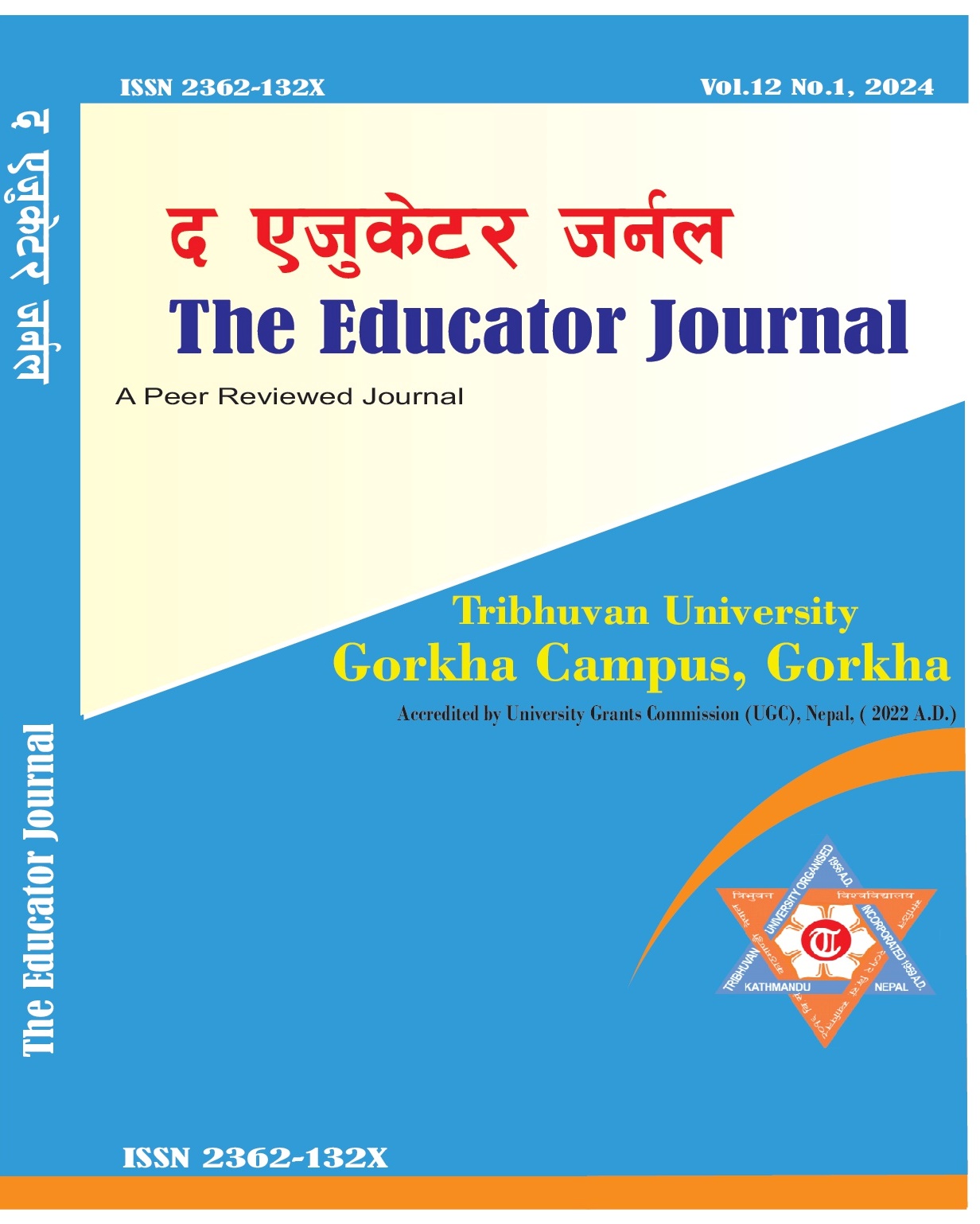Perception and Experience of COVID-19 Positive Cases at Gorkha District
DOI:
https://doi.org/10.3126/tej.v12i1.64915Keywords:
Experience, Home Isolation, Institutional Isolation, Knowledge, PerceptionAbstract
The Coronavirus disease has overcome geographical barriers achieving aremarkable proliferation. Because of that, different countries started public health protocols to control the spread of the virus, much of them related to social distancing, hand wash, and lockdown the cities. COVID-19 pandemic is rapidly increasing across the globe, creating a range of psychological impacts, including panic disorder, anxiety, depression and stress. In this panic scenario, this study was conducted in the Gorkha district to understand the perception and experience of COVID- 19 infected people. Data were collected through interviews in the period of 2021 to 2022. This study aimed to assess the Knowledge, perception and experience of COVID - 19 infected people while staying in isolation. This study followed the qualitative research method with Phenomenology research design was adopted. Phenomenology is a science to study the as experience by individual. In this study was conducted in the perception and experience of COVID-19 infected people that focuses on obtaining data through open-ended and conversational communication. and 24 interviews were collected from participants who were COVID-19 positive and had completed 14 days of isolation. The research participants were purposively selected based on their voluntary participation. The collected information was thematically analyzed and presented. Based on the nature of the information, some themes were quantified as well. The findings of the study revealed that participants have partial knowledge of the COVID-19 pandemic. Most of them shared that fever, cough, diarrhoea, shortness of breath, common cold, headache as symptoms of the disease, In addition, they shared that COVID-19 is a fatal disease. We need to care about this disease, whereas some participants opined that it is not an actual disease. It is only a rumour. Regarding the perception of the illness itself, most participants reported that using masks, washing hands or sanitizer, and maintaining social distance will help prevent the disease. Several interventions are also being implemented to prevent this pandemic, In this study which is framed using the Conceptual framework of the health belief model of stress and coping explained by Zewdie A, Mose A, Sahle T, et al. 2022. This study reports participants’ views on disease prevention measures such as maintaining personal hygiene, adhering to physical distancing, and using personal protective equipments. In addition, sheds light on people’s perspectives and experiences that can inform population-targeted policies in the future.




